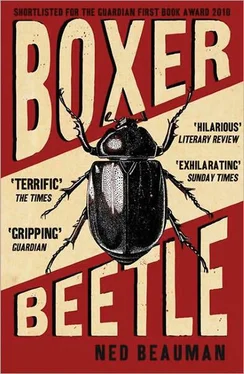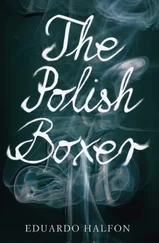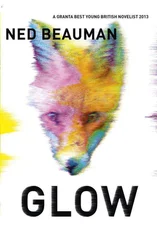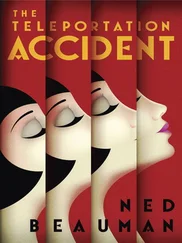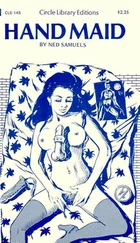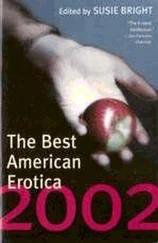It had been founded in 1914 by Rudolf von Sebottendorff, an occultist and adventurer. He took the name from Thule, the capital of Hyperborea, a lost utopia near the North Pole identified by the American congressman Ignatius L. Donnelly as the real location of Atlantis and the birthplace of the Aryan race. Sebottendorff held meetings in a hotel in Munich and even purchased a local newspaper. In 1919 two Thule Society members, Anton Drexler and Karl Harrer, were asked to establish a political front for the organisation, which they called the German Workers’ Party. Then in 1920 Adolf Hitler joined, and they changed the name to the National Socialist German Workers’ Party.
From then on, not much is known. Sebottendorff moved to Turkey, in flight from the agents of the Bavarian Soviet Republic, and the Thule Society is usually assumed to have withered away like a moth’s cocoon. But one meets a surprising number of people in the internet Nazi memorabilia collecting community who believe that the Nazi Party was never anything but a front for Ariosophist sorcerors. (Meanwhile, others believe that Hitler was either a British secret agent or the boss of some sort of homosexualist mafia.)
Indeed, Stuart insisted for a few months, until he lost interest, that the Thule Society was responsible for the September 11 attacks. You may already have heard that at the end of the Second World War the US military ran something called Operation Paperclip, shipping dozens of Nazi scientists to America to work on nuclear physics and rocketry. Actually, their true expertise, claims Stuart, was in antigravity, extraterrestrial life and necromancy, and many of them were hierarchs of the Thule Society. Somehow, these scientists made an alliance with their cousins at Yale University, the Skull and Bones Club, to which allegiance was owed by many of the most powerful men of the twentieth century, including Robert A. Lovett, architect of the CIA, and both Bush presidents. This ‘Brotherhood of Death’ saw the Third Reich as merely a practice run for the Fourth Reich, America’s New World Order, and their recent dirty tricks have included the demolition of the World Trade Center towers with remote-control plastic explosives and two holographic aeroplanes. Their eventual aim is to conquer the holy city of Agartha, hidden beneath the snows of Tibet, and use its supernatural powers to dominate the earth for eternity.
Although it’s perfectly obvious to me that we’ve been told a lot of lies about September 11, I find Stuart’s account a bit implausible for reasons I won’t go into here. It’s funny, I suppose, that an organisation like the Thule Society, composed mostly of paranoid bores who talked about nothing but the gods of Atlantis and the Protocols of the Elders of Zion, even worse than my ‘internet friends’, should itself return as a ghost to haunt every modern conspiracy theory. All paranoids soon begin to imitate their enemies, and the Thule Society did so almost too convincingly. Either way, however, there was something laughable about the notion of the Ariosophists, in the twenty-first century, assassinating a London private detective. Something laughable, and something terrifying. As I crossed Vauxhall Bridge, the MI6 building on my left, I thought of how a city is just whatever happens to accrete around the intersection of a million secrets: a fox in your garden is a stolen kiss is a pirate radio station is a dead detective is a Welsh Ariosophist with a gun is an ounce of skunk with your greasy chips is the collection of Nazi memorabilia that my employer, Horace Grublock, keeps upstairs in his penthouse flat.
Judah Kölmel, half-brother of the gangster Albert Kölmel, bent to lick Sinner’s shoulder. It was as salty as a herring, so Kölmel said, ‘That’s all for now.’ Any good coach could taste the sweat on a boxer and know if he’d trained long enough that day, but eighteen years after he painted the words ‘KOLMEL’S GYM’ over the door of an empty garment warehouse on Eighth Avenue, Judah Kölmel could do a lot more. He could taste if you ate kosher; he could taste alcohol and nicotine and marijuana; he could taste flu before your first sniffle. He could taste if his naked wife had faked it. He sometimes thought that he could taste bad luck, that he could taste impurity before God, and that he could taste the shadow of death. Three times out of four, he could taste if a boxer was going to win or lose his next fight. But when he tasted Sinner, he could taste, naturally, that Sinner had been skipping, jogging, and sparring for eight hours and that he’d done just about enough, but beyond that, nothing — sweat as blank as the condensation on a mirror.
So Kölmel, still a little perturbed by this even after a week’s acquaintance, made no wisecrack as he handed Sinner a towel, leaving his cousin Max Frink to say, ‘You worked hard today.’ The three of them started up the metal stairs to Sinner’s first-floor dressing room, though several customers of Kolmel’s Gym (which had never, for trading purposes, rescued the umlaut) were still at their punching-bags.
‘Can I go to Times Square tonight?’ said Sinner. He said it sarcastically, as he had every night since they arrived in New York, knowing the answer would be no. Frink insisted that it wasn’t half as good as Piccadilly Circus, anyway.
‘No need, Seth,’ said Kölmel. ‘We’re having some fun tonight. Big dinner.’
‘What?’ said Frink.
‘A banquet with Rabbi Berg,’ said Kölmel. ‘You know, like I promised in my letter.’
‘In you go,’ said Frink.
‘I’m out of fags,’ said Sinner. Kölmel handed the boy three Chesterfields and shut the door after him, leaving the two older men in the corridor.
‘What the hell is this about a dinner?’ said Frink quietly.
‘Rabbi Berg is excited to meet the kid. I’m sure I told you about it.’
‘Will there be wine?’
‘Yes, but—’
‘Rabbi Berg can meet Sinner another time.’
‘I promised him!’
‘No.’
‘Max, you don’t know how much the Rabbi does for us all. Or how much the guy could do for Sinner. He’s like a kid himself when it comes to boxing — he loves it. And he has relatives in London.’
‘Are you crackers? We’re paying to keep a bloke on the boy’s bedroom door at night, and now you want to throw him a nice party with wine?’ said Frink, struggling to keep his voice down. ‘Listen to me, Judah, maybe I don’t know much about this Rabbi Berg, but I’ll tell you what you don’t know: you don’t know how fast it can go wrong with Sinner. You’ve never seen it. For God’s sake, he has to fight tomorrow night.’ Kölmel had arranged a couple of warm-up bouts with local boys in advance of Sinner’s crucial match with Aloysius Fielding the following weekend. If Sinner beat Fielding, and he ought to, it would be enough to establish him in America, and that meant bigger fights, bigger titles, bigger purses. He might not have to return to England for months. The trip couldn’t have happened without Judah Kölmel, and Frink was so grateful that he would normally have gone along with anything he said, but this was too important; and if Frink was capable, once in a while, of defying Albert Kölmel, which very few men or women ever did, then he was certainly capable of disappointing Albert Kölmel’s half-brother.
‘All we got to do is watch him. You sit on his left, I sit on his right, and we follow him when he goes to take a piss.’ Kölmel’s false teeth were loose and they rattled as he spoke. He was rumoured to carry a small automatic pistol in his hip pocket at all times, and was a member of the New York Pangaean Club.
‘No. Absolutely not. We’re honoured by the invitation, Sinner and me, but absolutely not.’
Читать дальше
